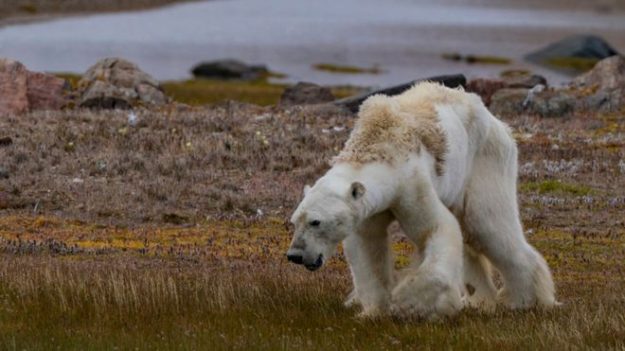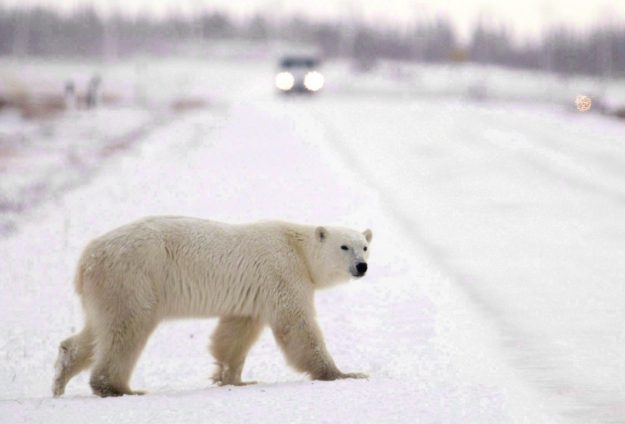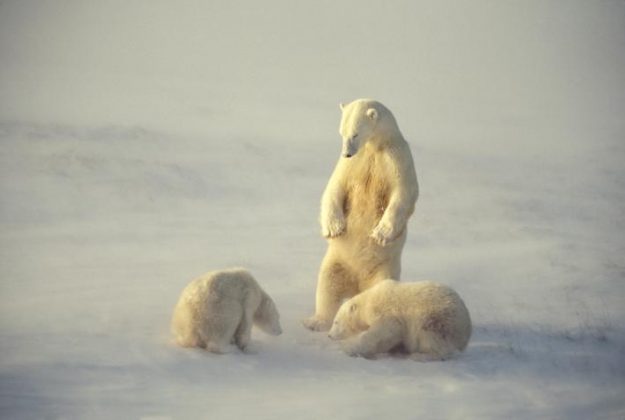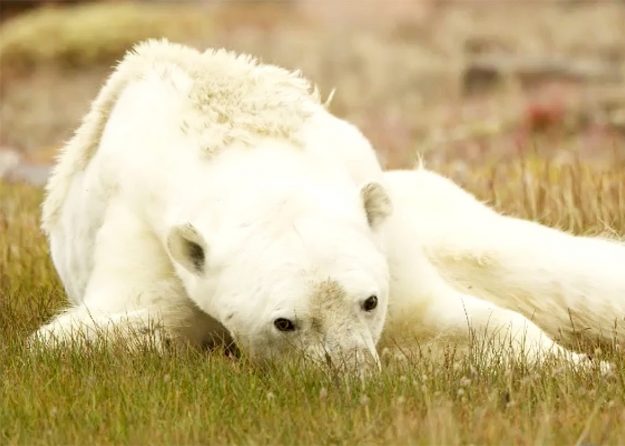By Prof. Miyase Christensen (Stockholm Univesity & Royal Institute of Technology, Sweden)
This is a moderated version (see Postscript at the end) of a chapter published in “The Sage Handbook of Media & Migration” (Sage, 2020). Editors: Kevin Smets, Koen Leurs, Myria Georgiou, Saskia Witteborn & Radhika Gajjala.
Introduction
In early 2019 it was announced that Greta Thunberg, a 16-year old Swedish climate activist, had been nominated for the Nobel Peace Prize. Thunberg originally gained national and international fame with her (then) solo climate-protest outside of the Swedish parliament building in Stockholm, a protest that grew in fame to the point where it developed into the ‘School Strike for Climate’ movement and the genesis for tens of thousands of student ‘strikes’ worldwide. The question, for some, was what Thunberg’s environmental protests had to do with peace. The answer can be found in, among other places, Africa where disputes over access to water along the Nile continue to escalate (with the threat of military intervention). In addition, and just a few days after Thunberg’s nomination, a cyclone hit the African countries of Mozambique, Zimbabwe and Malawi, killing large numbers and causing floodwaters in excess of 20 feet, destroying 90 percent of Mozambique’s fourth largest city, Biera. Thus, the concept of ‘peace’ cannot be separated from nature, as we witness both military conflict and humanitarian catastrophe in the Anthropocene (the current geological age marked by human influence on the environment), nor can it be separated from how human impact on the environment shapes migration, mobility and peace.
As Burke (2013) has noted in relation to what he calls the ultimate failure of a ‘moral community’, recent events such as those in north and east Africa are stark reminders of the futility of considering rising global temperatures, resource depletion or natural disasters simply as issues of national relevance:
When states draw on the same water sources, experience a common climate, depend on global prices and currency values, transmit conflict and weapons beyond their borders, and threaten and affect the lives of others far away, enclosed or circular models of moral community — however generous — fail to reflect an urgent reality. It is no longer a matter of deciding whether national interests and global goods must clash, but of honoring the common space of life and death that we have created.
Clearly, in all of these cases — from warfare to famine to human/natural disasters — mobility and migration are central components. It is the purpose of this chapter to offer a discussion of cosmopolitanism vis-à-vis mobility and migration from the standpoint of planetary politics and the Anthropocene, rather than within a global framing. Here, cosmopolitanism and mobility are considered in an integrativemanner in which the material and symbolic aspects can be considered together to open up new cosmopolitan horizons.
A Brief History Of Cosmopolitan Thought
In her 1980 collection of essays, Under the Sign of Saturn, Susan Sontag wrote a chapter on the Bulgarian-born writer Elias Canetti, who was taken from Austria to Britain in 1938 to escape the incoming Nazi regime. Canetti, described as the ‘son of a family of wandering Sephardic Jewish merchants’ and inspired by Goethe, wrote of his experiences in war-torn London. Sontag saw the connection between Canetti’s personal history, his writing and his connection to cosmopolitanism, and wrote of him:
He has, almost by birthright, the exiled writer’s easily generalized relation to place: a place is a language. And knowing many languages is a way of claiming many places as one’s territory. Canetti has the privilege and the burden of understanding, Jew that he is, the higher cosmopolitanism. (Mitgang, 1981)
Sontag continued by writing that a great deal of Canetti’s works point toward the importance of ‘how to pay attention to the world’ and that, in his work, ‘there is no doctrine’. Of course, the very form of cosmopolitanism that Sontag ascribed to Canetti — the fluid, exiled Jewish artist able to adapt and understand multiple cultural contexts — was the same form reviled by Stalin in the late 1940s and early 1950s Soviet Union. Employing the term ‘rootless cosmopolitan’ (originally used in 19th century Russia against Jewish writers), an anti-Semitic campaign to smear Jewish intellectuals was put into action in which their loyalty to both party and nation were questioned.
The flexibility and utility of the terms cosmopolitanand cosmopolitanism — there were, after all, only 30 years between the pejorative Stalinist use and Sontag’s celebration — speak to the long, rich (and often problematic) history of the terms. The concepts of cosmopolitanism and the cosmopolitan have, in various iterations and for various political and social ends, been woven into the intellectual history of humankind: from early Chinese Confucianism, to the ancient Greeks to Stalinist Russia. Ancient Greece is perhaps most famous for what was clearly not a cosmopolitan political and social project, namely evident in the political philosophies of Plato and Aristotle, in which men (and only men) swear their allegiance to a specific city (‘polis’) and its inhabitants alone. This essentially anti-cosmopolitan ideology — where sharing or collaborating with those who resided outside of polis was frowned upon, and where the only foreigners with whom one could/should interact were those already living within the walls of the polis — was juxtaposed by the philosophy famously attributed to the Cynic Diogenes, a 4th century BC resident of Sinope (now part of the Black Sea region of Turkey) who, when asked where he came from, answered: ‘I am a citizen of the world (kosmopolitês)’. This philosophy was then adapted by the Stoics and crystalized by the philosopher Hierocles who envisioned Stoic cosmopolitanism in the form of concentric circles with the human mind at the center, expanding outward to encompass family, extended family, local community, wider community, country/nation and, at the outer edge of the circles, the entirety of the human race. The goal, Hierocles posited, was to pull these various circles inward, thereby making the human, the national and the local issues of the person and the mind.
The ‘citizen of the world’ position taken by Diogenes was later adopted by intellectuals such as Thomas Paine. While in Paris in the late 1790s, Paine argued that, although not French by birth, his opposition to the execution of the deposed king Louis XVI — Paine claimed that capital punishment was inhumane and that the former monarch should be exiled — should be taken seriously because he was a ‘citizen of the world’. As Lamb (2014) writes, there is perhaps no political thinker in the post-ancient era that is so closely associated with the philosophy originally espoused by Diogenes. Lamb (2014: 638) notes that Paine regularly points out the ‘universal validity (and falsity) of moral and political claims’ and that their ‘evaluation can never be confined to one particular national, historical or cultural context’. In a famous line from his pamphlet Common Sense, and in the spirit of universalism and inter-connectedness, Paine (2003) unwittingly presaged questions related to environmental degradation and the Anthropocene when he wrote, ‘the cause of America is in great measure the cause of all mankind’. At almost precisely the same time as Paine was writing Common Sense, Immanuel Kant published Perpetual Peace: A Philosophical Sketch(1970) in whichhe outlined his ideas for a program of global peace to be enforced by national governments. In addition to a list of articles intended to eliminate warfare, three additional articles were included to ensure that peace and stability could be maintained with the third of these directly related to cosmopolitanism: ‘The law of world citizenship shall be limited to conditions of universal hospitality’. This ‘Cosmopolitan Law’ was an addition to constitutional and international law and was predicated on the belief that human beings have inalienable rights as citizens of earth and not just as citizens of states.
What this brief history of cosmopolitanism shows us is not only the flexibility in how the term has been used, but, also, how the conception of being a ‘citizen of the world’ tends to dominate the epistemological framing of being a cosmopolitan. This is a citizenship that is on the surface dynamic, but ultimately static and rooted in time. Interestingly, however, it was the original proponent of cosmopolitanism, Diogenes, who provided the most forward-thinking and radical conception of the term. For Diogenes, cosmopolitanism was more than simply the acceptance of ‘the other’, it was about active (rather than theoretical) participation in dissent: to challenge prevailing wisdom, to question power, to expose excessive consumption and greed and to live a life free of material possessions and waste. The ‘anti-elite and anti-institutional notions of belonging and citizenship’ held by Diogenes and the Cynics were in opposition to the more conservative Stoic tradition (Delanty, 2012: 3). It is this conception of cosmopolitanism that is perhaps most useful when considering the relationship to the Anthropocene and environment as it foregrounds the long-term, temporal impact of human action (and inaction) rather than focusing on short-term impact. For example, Marxist notions of dominating nature and expanding production to benefit workers were geared toward an ultimately cosmopolitan end: the erosion and collapse of nation-states and the emergence of a classless, humanitarian society. Yet, this end is untenable and can result in the destruction of earth if no governed tightly and sensibly. In the subsequent sections, how cosmopolitanism must embrace not only a philosophy of inclusion, but one of dissent and activism in the face of radical environmental change, will be addressed.
Cosmopolitanism in the Mediated Anthropocene
How might we conceive of a cosmopolitan vision connecting the concepts of the Anthropocene and migration within the more radical tradition of Diogenes and the Cynics? One way to start would be to challenge the ways in which media and communication studies have traditionally addressed questions of cosmopolitanism and the media. To date, the mediated ‘cosmopolitan vision’ has usually been discussed within the parameters of consumption of various forms of representation: from popular culture to news (Robertson, 2019). Such a focus, however, runs the risk of reducing media ‘consumption’ to the act of reading, listening or seeing. It doverces the acts of producing and purchasing media hardware from the act of absorbing representation. This conception also ignores what Parikka (2012; in Christensen & Nilsson, 2018) described as the ‘dirty matter’ produced in modern society. This matter includes the chemicals and minerals required for the production of contemporary communication technology hardware: chemicals and materials that are mined in predominantly poorer nations, with catastrophic environmental effects. In addition to the devastating consequences of the extraction of these materials, there exists similarly devastating environmental consequences for the disposal of the same materials. Cultural imperialism studies (e.g. Boyd-Barrett, 1977; Schiller 1976; 1991) addressed the ‘core-periphery’ relationship between ‘developed’ and ‘developing’ nations, yet reduced the material that would flow back from core (wealthy nations) to periphery (poorer nations) to media/cultural products (TV programs, films, music). This analysis, while canonic and highly insightful, overlooked the extent to which the discarded hardware of media, including vast quantities of toxic material (in the case of, for example, computers), are also dumped in poorer nations, again leading to environmental degradation (Christensen & Nilsson, 2018: 271–2).
In relation to the Anthropocene and migration, therefore, a radical cosmopolitan perspective must take into account the material impact of the consumption of media hardware upon the environment, and the potential of that consumption to contribute to the conditions that lead to forced and involunatry migration. This follows the longitudinal perspective, embraced by Diogenes, within which all stages and all forms of media ‘consumption’ — from the mining of the materials required to produce media hardware to their eventual disposal in the form of e-waste — must be considered for a truly radical and holistic cosmopolitian understanding of media consumption. This is what Parikka (2012: 97) termed ‘media-natures’, which would be used for the study of the ‘continuum between mediatic apparatuses and their material contexts in the exploitation of nature’.
In media and communication studies, notable perspectives and empirical analyses have been produced over the past few decades. Yet, we have probably just begun to scratch the surface in terms of the potential of cosmopolitan thought. As a result of media and communication studies being the off-shoot of various other disciplines (for example, Literary Studies in the US), as well as being periodically ridiculed in popular press as ‘Mickey Mouse Studies’ in the UK not so long ago, there has, at times, been a tendency to defer to dominant paradigms of thought and research, and not to develop new, radical, progressive theory (related to, for example, issues of central importance to the earth on which we live). It is telling that many of the strands of theory and thought that were perceived as marginal to media and communication research — such as environmental humanities — should, in truth, be at the heart of media and communication studies. It is only this form of thinking that will enable media and communication studies to take the steps required to address the relationship between, for example, the Anthropocene and media consumption. In concrete terms, Peters (2015: 2) has argued that we should ‘conceive of the media as both nature and culture’.
One connective tissue between this new form of theory and research, the Anthropocene and the theme of migration, is that of geo-politics. The traditional conception of geopolitics has been one of ‘the world’ or ‘the global’, yet we need to move beyond these concepts and embrace the notion of planetary politics. Along these lines, Elden (2013) suggests that we think of a ‘politics of the earth’ rather than a ‘politics of the global’. This meshes well with Burke’s (2013) cosmopolitan notion of ‘honoring the common space of life and death that we have created’. Of course, migration is one part of geo-politics and so a cosmopolitan vision should go beyond moral, ethical, legal and representational notions, and develop a more holistic understanding within the framework of the Anthropocene. As Christensen and Nilsson (2018: 272–3) write: ‘bringing in geopolitical perspectives (makes) visible the planetary scale through addressing questions of geographic interplay as well as the human scale through an emphasis on politics and power (such as colonial legacies and contemporary dynamics of subordination)’.
Conclusion
In this short essay, the goal has been to stimulate thought on the relationship between cosmopolitanism, migration and the Anthropocene, but to also consider how media and communication studies can and should adapt to contemporary planetary environmental conditions. The Nobel Prize nomination given to Sweden’s Greta Thunberg was presented as a starting point to consider how climate and peace are interconnected. Thunberg’s Swedish nationality is a good place to end. As has been well documented, Sweden has, per capita, taken more refugees than any other country in Europe and far more per capita than countries such as the United States, Canada and Australia. Much has also been made of the fact that a majority of these refugees have come from war-torn Syria and, just over a decade ago, from war-torn Iraq. The destabilization of Iraq, and the political and military vacuum that followed, contributed to the formation of the Islamic State (IS) which, in turn, led to the de-stabilization of Syria. Sweden’s intake of refugees and immigrants from these nations has a direct relationship to the Anthropocene: the US bombing of Iraq in the early 1990s and the US/UK invasion and occupation of Iraq that began in 2003 were both efforts to secure US and European access to oil. Thus, it can be reasonably argued it was the excessive demand for oil and petroleum products that contributed to Sweden’s considerable intake of refugees from Iraq and Syria.
How does this bring us back to cosmopolitanism and academic research? To take the case of media and communication studies, the analysis of, for example, the representation of migrants from Syria or Iraq has usually defined these groups as fleeing conflict or war. Less common (if at all) is to define them, ultimately, as victims of a hyper-consumption fuelled by the media that cover them, politicians who use them as pawns and media consumers who now read reductionist stories about them. Thus, framing refugees and migrants as the effects of specific conflicts bypasses deeper global environmental and consumption issues in favor of discourses of war which absolve the reader (and researchers) from personal responsibility.
Cosmopolitanism has usually been framed as a question of space, and empathizing with those from other places. What it rarely has been framed as, however, is a question of empathy and engagement across time. As history changes, the work and activism of Diogenes reminds us of the need to think of cosmopolitanism in temporal terms, as our actions today will have effects many years down the road.
Postscript, March 2020
Given the issues raised in this chapter, the current coronavirus (COVID-19) outbreak is a stark reminder of how those who work within the field of Media and Communication Studies (and academia in general) would do well do consider how our own professional practices are often at odds with the (admittedly laudible) egalitarian and pro-social framework within which a great deal of research is conducted. Earlier in this piece, I noted how the technology hardware used in the media industry, and by academics, make a significant contribution to environmental degradation: a fact that often goes without comment in political economic and social analyses of the “impact of media.” By the same token, we might ask how and why these same technologies that, at the very least, allow for instantaneous visual and aural communication over great distances — technologies used on a daily basis in so many other areas of our work — are suddenly abanadoned in favor of highly damaging long-distance travel for events such as academic conferences. That it takes an outbreak like COVID-19 to stop these practices, even in the face of existing overwhelming evidence of the damage caused by things such as air travel, speaks to the chasm between much academic rhetoric on progressive practice and action.
References
- Boyd-Barrett, O. (1977). Media imperialism: Towards an international framework for the analysis of media systems. Mass Communication and Society, 116–135.
- Burke, A. (2013). Security cosmopolitanism. Critical Studies on Security, 1(1), 13–28.
- Christensen, M., & Nilsson, A. E. (2018). Media, communication, and the environment in precarious times. Journal of Communication, 68(2), 267–277.
- Delanty, G. (2012). Introduction: The emerging field of cosmopolitanism studies. In G. Delanty (ed.), Routledge handbook of cosmopolitanism studies. (pp. 20–27). London: Routledge.
- Peters, J. D. (2015). The marvelous clouds: Toward a philosophy of elemental media. Chicago, IL: University of Chicago Press.
- Kant, I. (1970). Perpetual peace: A philosophical sketch(Vol. 1991). Cambridge: Cambridge University Press.
- Lamb, R. (2014). The liberal cosmopolitanism of Thomas Paine. The Journal of Politics, 76(3), 636–648.
- Mitgang, H. (1981). Cosmopolitan in tradition of Goethe. New York Times, 16 October. Available at: https://www.nytimes.com/1981/10/16/books/cosmopolitan-in-tradition-of-goethe.html
- Paine, T. (2003). Common Sense and Other Writings, ed. Gordon S. Wood (New York: The Modern Library, 2003), xxi–xxii.
Parikka, J. (2012). New materialism as media theory: Medianatures and dirty matter. Communication and Critical/Cultural Studies, 9(1), 95–100.
- Robertson, A. (2019). Media Cultures and Cosmopolitan Connection. In G. Delanty (ed.), Routledge handbook of cosmopolitanism studies. London and New York: Routledge.
- Schiller, H. I. (1991). Not yet the post-imperialist era. Critical Studies in Media Communication, 8(1), 13–28.
- Schiller, H. I. (1976). Communication and cultural domination. White Plains: International Arts and Sciences Press.


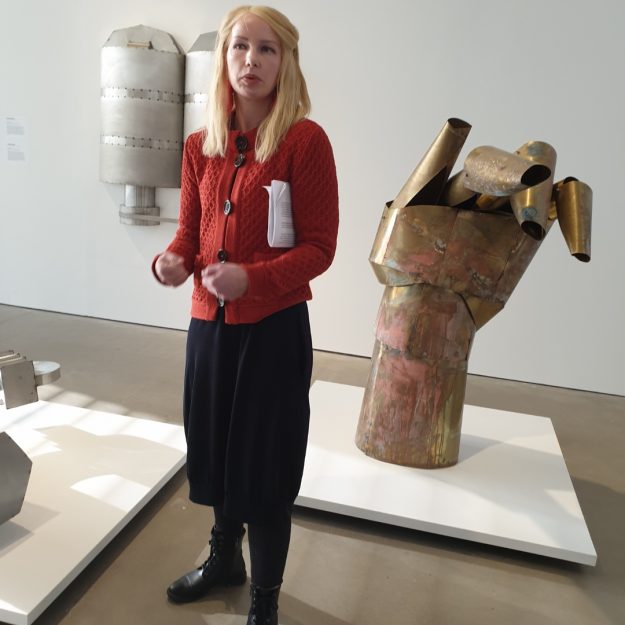
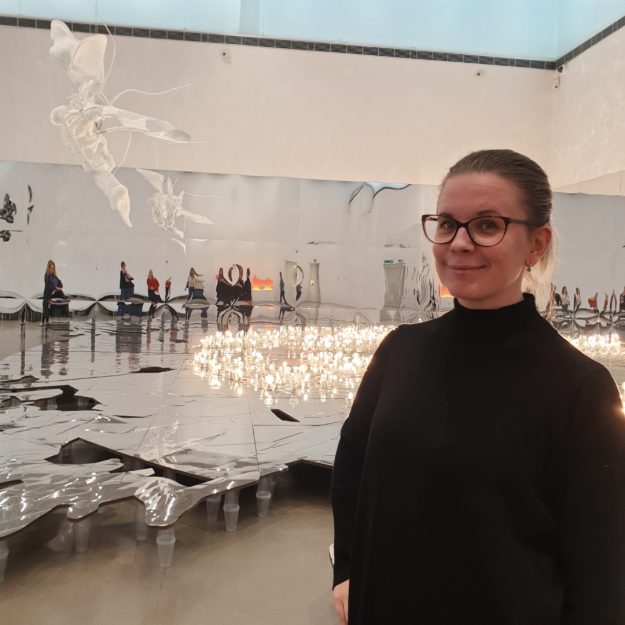
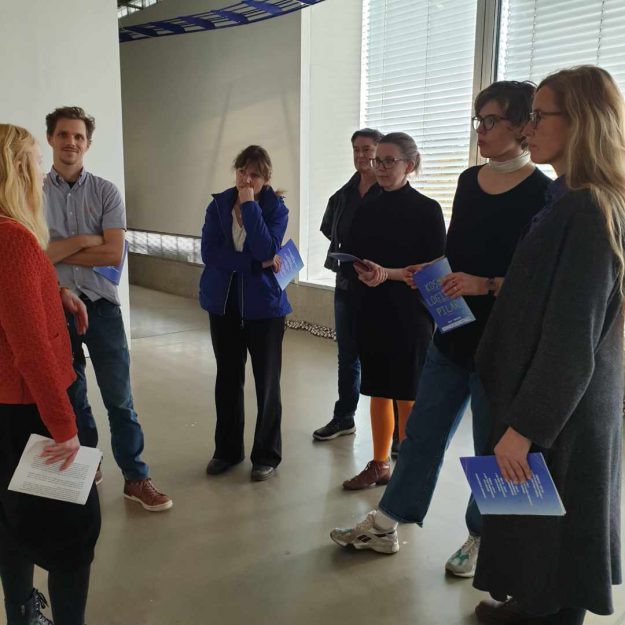
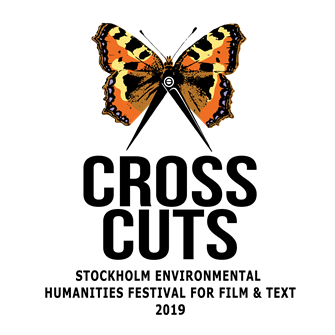 I programmet har vi Saskia Sassen, sociolog och professor vid Columbia University, speciellt inbjuden som hedersgäst för att presentera Fredrik Gertténs omtalade dokumentär Push, där hon även själv medverkar. I en efterföljande panel samtalar Saskia tillsammans med Erik Stenberg, arkitekt och lektor KTH och Marco Armiero, lektor och miljöhistoriker KTH om städers gentrifiering och konsekvenserna av detta. Samtalet modereras av Miyase Christensen, professor i media och kommunikation vid Stockholms universitet.
I programmet har vi Saskia Sassen, sociolog och professor vid Columbia University, speciellt inbjuden som hedersgäst för att presentera Fredrik Gertténs omtalade dokumentär Push, där hon även själv medverkar. I en efterföljande panel samtalar Saskia tillsammans med Erik Stenberg, arkitekt och lektor KTH och Marco Armiero, lektor och miljöhistoriker KTH om städers gentrifiering och konsekvenserna av detta. Samtalet modereras av Miyase Christensen, professor i media och kommunikation vid Stockholms universitet.


